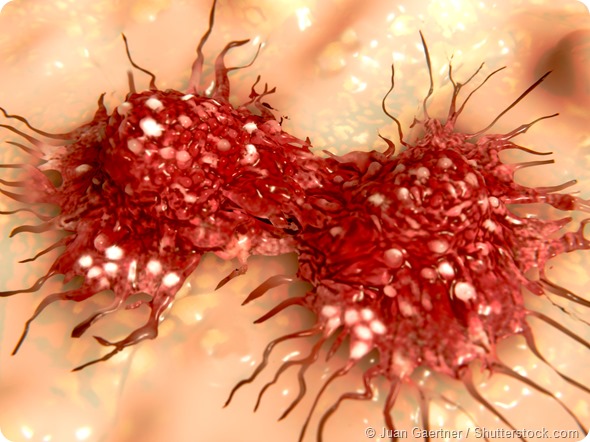Research published yesterday in Nature Communications has revealed a previously unknown mechanism by which metastasizing cancer cells survive when they break away from the primary tumor. It is hoped that the discovery could help with the development of novel cancer treatments that prevent metastasis.

Cancer cells often breakaway from the primary tumor in order to spread to new sites around the body. These breakaway cancer cells will settle at different locations and develop into new tumors.
This spreading process is known as metastasis and is the reason that treating cancer is so challenging. It is frequently these secondary cancer growths, rather than the primary tumor, that are fatal.
Until now, it was not known how the breakaway cancer cells survived once they left the relative security of the tumor. Individual cells are generally quite vulnerable and would be expected to die once detached from the protection of a tissue mass.
Metastasis is currently incurable and remains one of the key targets of cancer research. Our research advances the knowledge of how two key molecules communicate and work together to help cancer cells survive during metastasis."
"We're hoping that this might lead to the discovery of new drugs to block the spread of cancer within the body".
Lead researcher Dr Stéphanie Kermorgant.
Researchers at Queen Mary University of London studied cancer cells in culture, zebrafish and mice investigating how they changed on breaking away from the parent tumor. They discovered that an integrin protein, beta-1, pairs up with another protein called c-Met and enters the cell to initiate a novel survival mechanism.
The paired proteins travel to the part of the cell usually used to degrade and recycle old cell material. This unusual location is transformed into a communication center from where the protein pair issues signals to the rest of the cell telling it to resist death.
Further research showed that metastases were less likely to form when the beta-1 and c-Met pair was prevented from reaching the special location within the cell.
Integrins are proteins on the cell surface that allow a cell to attach to and interact with its surroundings. They are already known to play a role in cancer by facilitating the attachment of cancer cells to their chosen site in the body.
The latest research, however, indicates that when cancer cells break away from the tumor integrin proteins take on a new role. Instead of their usual adhesion role, they switch to providing within-cell signaling. Such communication has never been seen with integrin proteins before.
Although integrin inhibitor drugs already play a significant role in cancer therapy, they currently target the adhesive function of integrins by blocking them on the surface of the cancer cell. The newly discovered novel role of integrins within the cancer cell indicates that it is also necessary to prevent integrin from being internalized into the cell.
It is hope that this increased understanding of the role of integrins in cancer metastases could allow better cancer therapies to be designed. Ultimately, this could lead to more effective treatment combinations that not only slow tumor growth but also prevent the spread of cancer to other parts of the body.
Source:
American Association for the Advancement of Science. Press release 23 June 2016. Available at http://www.eurekalert.org/pub_releases/2016-06/qmuo-ufr062116.php